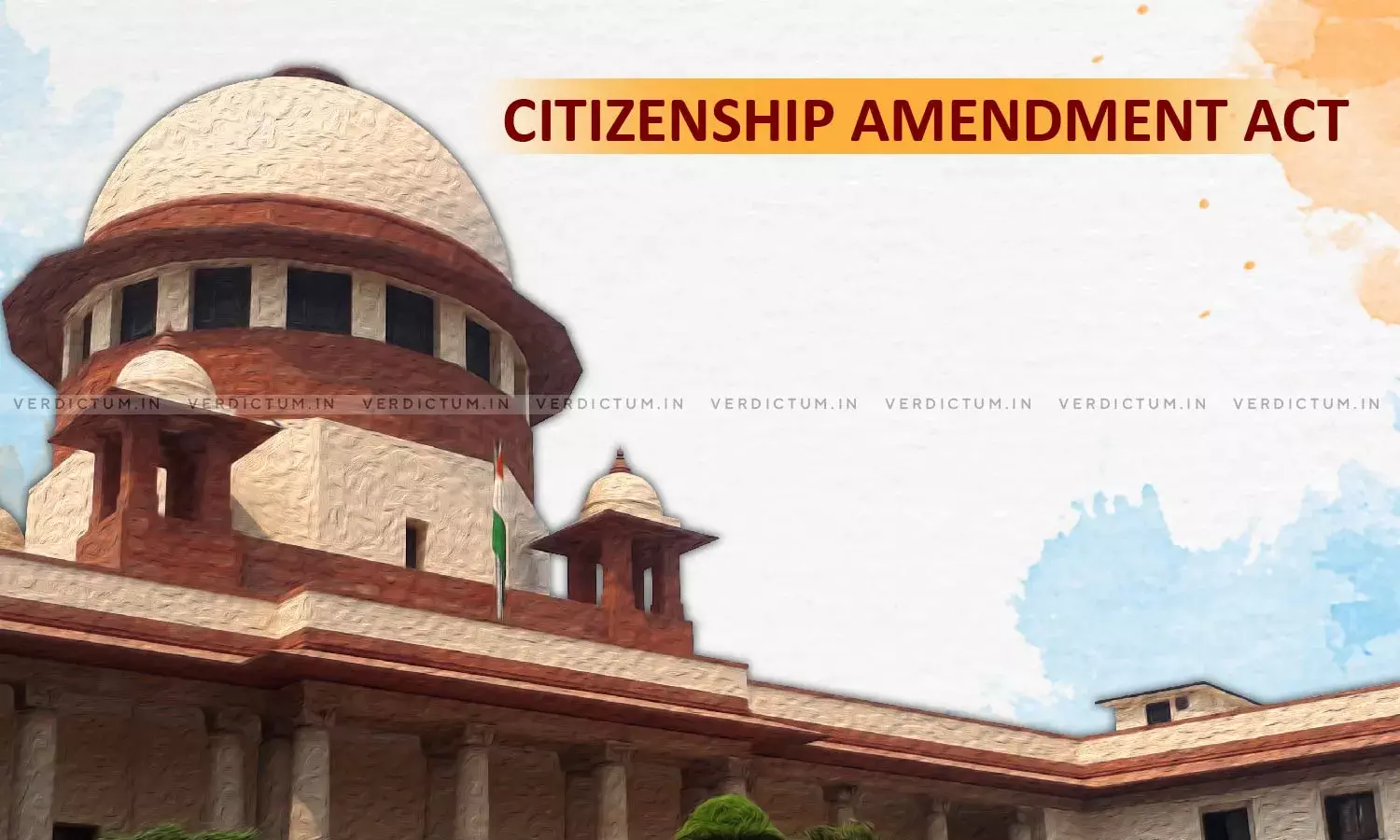SC Agrees To Hear Plea Seeking Stay Of Implementation Of Citizenship (Amendment) Rules 2024 On Tuesday

The Supreme Court has agreed to hear the applications for staying the implementation of the Citizenship (Amendment) Rules, 2024 on March 19, 2024.
Today, when Senior Advocate Kapil Sibal mentioned these matter before the Bench headed by Chief Justice D.Y. Chandrachud, the Court said, “We will replace the whole batch with the I.A.s so that nothing has left out there… we request all the lawyers who are appearing for diverse parties to ensure that may be one or two counsels make their submission because otherwise there will be overlapping record.”
Senior Advocate Kapil Sibal submitted “We waited almost four years and three months and just before the elections they notified the Rules. Kindly, list the matter because if that process starts and the citizenship is granted it will be impossible to reverse it.”
The Indian Union Muslim League (IUML) and Democratic Youth Federation of India (DYFI) filed separate applications before the Supreme Court, both seeking directions to stay the implementation of Citizenship (Amendment) Rules, 2024 which were notified on March 11, 2024, by the Central Government, alleging it to be in violation of Article 14 of the Constitution of India, and unconstitutional, discriminatory and manifestly arbitrary.
The Applications have been filed in the Writ Petitions, which are already pending before the Supreme Court, against the enactment of the Citizenship (Amendment) Act, 2019(CAA).
The DYFI in its Application stated, “That present public interest writ petition raises a seminal important question related to the promulgation of Citizenship (Amendment), Act 2019, wherein first-time religion is introduced as a reference point/condition for acquisition of Indian Citizenship for illegal/undocumented migrants from Afghanistan, Bangladesh and Pakistan. Citizenship is being extended to certain a class of illegal/undocumented migrants belonging to the religion of Hindus, Sikhs, Buddhists, Jains, Parsis and Christians coming from Afghanistan, Bangladesh and Pakistan. Such classification on the basis of religious identity of the individual clearly violates Article 14 and 21 of the Constitution. Moreover, the classification based on the religious identity of the individual offends the fundamental principle of 'Secularism', which is enshrined as the basic structure of the Constitution.
Muslim League in its Application has stated that the CAA is manifestly arbitrary for various reasons. It stated, “Religion-based citizenship: The preamble of the constitution envisages that India is a secular country and therefore every law which is passed by the Parliament has to be religion-neutral. No law can be passed by the parliament if the basis of such a law is religion. This strikes at the root of the concept of Secularism which is the basic structure of the constitution. For this reason alone, the impugned Act is manifestly arbitrary.”
Further stated, “The impugned notification, however, is creating a further distinction between persons of Indian origin from Afghanistan, Pakistan, Bangladesh who belong to a religious minority in these countries, and other persons of Indian origin by creating a special process for them. Notably, Muslims who are persons of Indian origin, do not get to avail the benefits of this expedited process of registration.”
The CAA was passed by the Parliament in 2019 amending the Citizenship Act, 1955. Proviso to Section 2(1)(b) states that migrants who belong to Hindu, Sikh, Buddhist, Parsi, Jain and Christian religions from Pakistan, Afghanistan and Bangladesh are eligible for citizenship by naturalization if they establish their residency in India for five years, instead of eleven years.
The implementation of the Act was temporarily extended due to nationwide protests against the Act, alleging it to be unconstitutional. In a significant development, on March 11, 2024, the Union Government notified the Citizenship (Amendment) Rules, 2024, which are in line with the 2019 CAA and provide for an online system for the applications, processing and grant of citizenship under CAA.
Cause Title: Indian Union Muslim League and Ors. v. Union of India and Ors. and Democratic Youth Federation Of India V. Union Of India & Ors.

